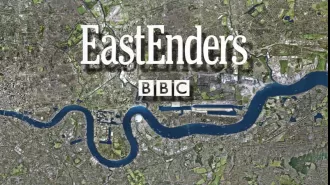Why would Iran risk everything in a war against Israel when they have so much to lose?
Iran launched missiles at Israel, risking a costly regional war. Most missiles were shot down, but Israel and US vow retaliation.
October 5th 2024.

The recent events in the Middle East have once again brought the region to the brink of a disastrous war. With Iran launching a barrage of ballistic missiles towards Israel and the United States successfully intercepting most of them, tensions have reached a boiling point. In the aftermath of the attack, Israeli Prime Minister Benjamin Netanyahu wasted no time in vowing retaliation against Iran, calling their actions a "big mistake" that they will pay for.
This attack marks a significant shift in Iran's usual tactics of using proxy groups like Hezbollah and Hamas to fight their battles. For weeks, Israel had been targeting these groups and their leaders in Gaza and Lebanon, causing Iran to reevaluate their approach. The killing of Hamas political leader Ismail Haniyeh in Tehran further escalated the situation, with Iran's leaders promising to respond accordingly. However, they left it to Hezbollah to take action.
As Israel continued its military campaign against Hezbollah, another Iranian proxy group, the Houthi rebels in Yemen, claimed responsibility for launching missiles and drones at Israeli cities and US destroyers in the Red Sea. In response, Israel conducted airstrikes on Yemen. This back-and-forth between Iran and Israel has put pressure on Iran to step up and assert its role as the leader of the "axis of resistance" against Israel.
Fighting against Israel is deeply ingrained in Iran's state identity, with their political establishment built on the principle of challenging the US and freeing Palestinian lands from Israeli occupation. If they do not act on this principle, it could undermine their own identity. However, there are also serious risks to direct attacks on Israel. Domestically, the Iranian regime is facing a crisis of legitimacy with multiple uprisings in recent years. There are also dissenting voices within Iran that do not support their anti-US and anti-Israel stance.
This delicate balancing act has made it challenging for Iran to make a move against Israel. On one hand, they must maintain their state identity, and on the other hand, they must manage internal dissent and ensure their survival. The recent appointment of President Masoud Pezeshkian, a reformist who aims to improve relations with the West, has further complicated things. However, the regional dynamics have changed since the Iran nuclear deal was negotiated in 2015, making it difficult for Iran to repair its global standing while openly supporting groups like Hezbollah and Hamas.
Ultimately, it is the supreme leader Ayatollah Ali Khamenei and the Supreme National Security Council who make decisions regarding war and peace. The recent actions of the Islamic Revolutionary Guard Corps, who have been advocating for more aggressive action against Israel, have been heeded by the supreme leader. This has led to Iran taking a more direct approach in their fight against Israel, despite the risks it poses to their internal stability and the possibility of an all-out war.
Iran's attack on Israel also comes with the possibility of retaliation from Israel and the involvement of the US. This would not only escalate the conflict but also have significant implications for trade and security in the region. While Iran is prepared for this risk, they also understand that their actions could potentially drag the entire Persian Gulf into the conflict.
In conclusion, the recent events in the Middle East have put Iran in a difficult position. Their state identity and principles are being challenged by Israel's actions, and they must carefully balance their response to maintain their survival. Meanwhile, the region is at risk of descending into a full-scale war, with the involvement of major global powers like the US. As tensions continue to rise, it is crucial for all parties involved to carefully consider the consequences of their actions.
This attack marks a significant shift in Iran's usual tactics of using proxy groups like Hezbollah and Hamas to fight their battles. For weeks, Israel had been targeting these groups and their leaders in Gaza and Lebanon, causing Iran to reevaluate their approach. The killing of Hamas political leader Ismail Haniyeh in Tehran further escalated the situation, with Iran's leaders promising to respond accordingly. However, they left it to Hezbollah to take action.
As Israel continued its military campaign against Hezbollah, another Iranian proxy group, the Houthi rebels in Yemen, claimed responsibility for launching missiles and drones at Israeli cities and US destroyers in the Red Sea. In response, Israel conducted airstrikes on Yemen. This back-and-forth between Iran and Israel has put pressure on Iran to step up and assert its role as the leader of the "axis of resistance" against Israel.
Fighting against Israel is deeply ingrained in Iran's state identity, with their political establishment built on the principle of challenging the US and freeing Palestinian lands from Israeli occupation. If they do not act on this principle, it could undermine their own identity. However, there are also serious risks to direct attacks on Israel. Domestically, the Iranian regime is facing a crisis of legitimacy with multiple uprisings in recent years. There are also dissenting voices within Iran that do not support their anti-US and anti-Israel stance.
This delicate balancing act has made it challenging for Iran to make a move against Israel. On one hand, they must maintain their state identity, and on the other hand, they must manage internal dissent and ensure their survival. The recent appointment of President Masoud Pezeshkian, a reformist who aims to improve relations with the West, has further complicated things. However, the regional dynamics have changed since the Iran nuclear deal was negotiated in 2015, making it difficult for Iran to repair its global standing while openly supporting groups like Hezbollah and Hamas.
Ultimately, it is the supreme leader Ayatollah Ali Khamenei and the Supreme National Security Council who make decisions regarding war and peace. The recent actions of the Islamic Revolutionary Guard Corps, who have been advocating for more aggressive action against Israel, have been heeded by the supreme leader. This has led to Iran taking a more direct approach in their fight against Israel, despite the risks it poses to their internal stability and the possibility of an all-out war.
Iran's attack on Israel also comes with the possibility of retaliation from Israel and the involvement of the US. This would not only escalate the conflict but also have significant implications for trade and security in the region. While Iran is prepared for this risk, they also understand that their actions could potentially drag the entire Persian Gulf into the conflict.
In conclusion, the recent events in the Middle East have put Iran in a difficult position. Their state identity and principles are being challenged by Israel's actions, and they must carefully balance their response to maintain their survival. Meanwhile, the region is at risk of descending into a full-scale war, with the involvement of major global powers like the US. As tensions continue to rise, it is crucial for all parties involved to carefully consider the consequences of their actions.
[This article has been trending online recently and has been generated with AI. Your feed is customized.]
[Generative AI is experimental.]
0
0
Submit Comment





